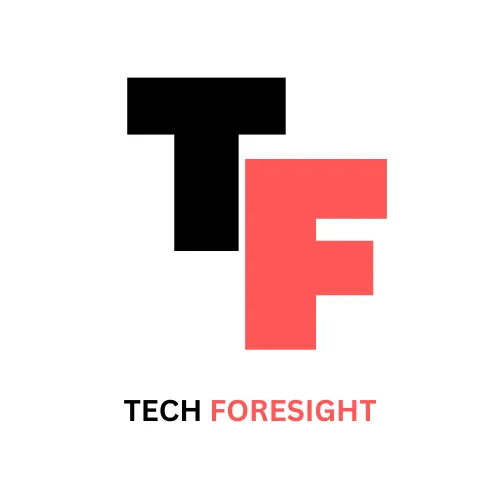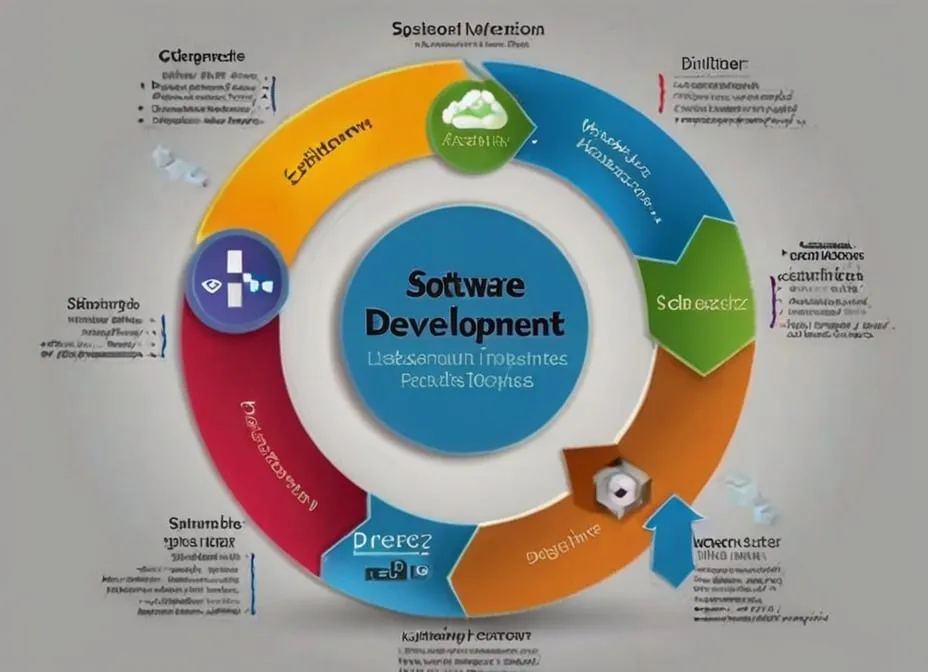Monetize Data Ethically: Options, Considerations, Future Outlook
I. Introduction
A. The Rise of Data-Driven Economies
In today's digital age, data has become the new currency. From personalized advertising to predictive analytics, businesses across industries are harnessing the power of data to drive innovation, enhance customer experiences, and unlock new revenue streams. As the world becomes increasingly data-driven, the question of how to ethically monetize this valuable resource has become a topic of heated debate.
B. Defining Data Monetization
Data monetization refers to the process of extracting value from data assets by converting them into revenue-generating products or services. This can involve selling data directly, providing data-based insights or analytics, or leveraging data to enhance existing offerings. However, as with any valuable commodity, the monetization of data raises important ethical concerns around privacy, security, and fairness.
C. The Importance of Ethical Considerations
While data monetization presents significant opportunities for businesses, it is crucial to address the ethical implications of these practices. Failing to prioritize ethical considerations can lead to a loss of consumer trust, regulatory fines, and reputational damage. As such, organizations must strike a delicate balance between extracting value from their data assets and upholding ethical standards that protect individual privacy and promote responsible data governance.
II. Ethical Options for Data Monetization
A. Data Licensing
One of the most common methods of data monetization is data licensing, where organizations sell or license their data assets to third parties for a fee. This approach allows businesses to generate revenue from their data while maintaining control over how it is used and distributed.
1. Licensing Models
There are various licensing models to consider, including:
- Perpetual licenses: Granting indefinite access to the data for a one-time fee.
- Subscription licenses: Providing ongoing access to regularly updated data for a recurring fee.
- Pay-per-use licenses: Charging based on the amount of data accessed or the number of queries made.
2. Potential Risks and Safeguards
While data licensing can be a lucrative option, it also carries risks such as data misuse, breach of confidentiality, and liability concerns. To mitigate these risks, organizations should implement robust data governance frameworks, establish clear licensing agreements, and conduct due diligence on potential licensees.
3. Success Stories and Use Cases
Many companies have successfully monetized their data through licensing. For example, Nielsen, a leading market research firm, licenses its consumer behavior data to businesses and advertisers, while weather data providers like AccuWeather and The Weather Company sell their data to various industries, including agriculture, aviation, and insurance.
B. Data Sharing Partnerships
Another ethical option for data monetization is to establish data sharing partnerships with other organizations. These partnerships can involve the exchange of data assets or the collaborative development of data-driven products and services.
1. Types of Partnerships
Data sharing partnerships can take various forms, including:
- Industry collaborations: Companies within the same industry pooling their data assets to gain deeper insights and foster innovation.
- Cross-industry partnerships: Organizations from different industries combining their data to create novel solutions or products.
- Research partnerships: Collaborations between businesses and academic or research institutions to advance scientific understanding and drive innovation.
2. Establishing Trust and Transparency
Successful data sharing partnerships rely heavily on trust and transparency among all parties involved. Clear guidelines, robust governance frameworks, and open communication channels are essential for ensuring that data is handled responsibly and in accordance with agreed-upon terms.
3. Examples of Successful Partnerships
Many notable data sharing partnerships have emerged across various industries. For instance, the Open Data Institute collaborates with organizations to build open data ecosystems and promote the ethical use of data. Another example is the partnership between Ford and Uber, which involved sharing data to improve urban mobility and transportation solutions.
C. Data Marketplaces
Data marketplaces are online platforms where organizations can buy, sell, or exchange data assets. These marketplaces facilitate the discovery, pricing, and distribution of data, enabling businesses to unlock new revenue streams and access valuable datasets.
1. How Data Marketplaces Work
Data marketplaces typically operate as intermediaries, connecting data providers with data buyers. They often offer tools for data curation, pricing, and licensing, as well as mechanisms for ensuring data quality and security.
2. Advantages and Disadvantages
The primary advantage of data marketplaces is the convenience and efficiency they offer in connecting data buyers and sellers. However, they can also introduce challenges related to data quality, pricing transparency, and regulatory compliance.
3. Popular Data Marketplaces
Some popular data marketplaces include Dawex, Datarade, and Narrative. These platforms host a wide range of datasets spanning various industries, from marketing and finance to healthcare and transportation.
D. Data-as-a-Service (DaaS)
Data-as-a-Service (DaaS) is a model where organizations offer data on-demand, typically through cloud-based platforms or APIs. This approach allows businesses to monetize their data assets by providing access to real-time or regularly updated datasets.
1. Understanding DaaS Models
DaaS models can vary, ranging from subscription-based access to pay-per-use pricing. Some DaaS providers offer raw data, while others provide value-added services such as data integration, analytics, or visualization tools.
2. Pricing and Revenue Strategies
Pricing strategies for DaaS can include fixed subscription fees, usage-based pricing (e.g., per API call or per record), or a combination of both. Organizations must carefully consider factors such as data volume, complexity, and demand when determining their pricing models.
3. Use Cases and Success Stories
DaaS has been adopted across various industries, including financial services (e.g., market data providers), logistics (e.g., real-time location data), and marketing (e.g., consumer behavior data). Companies like Factual, Accern, and Snowflake are notable examples of successful DaaS providers.
III. Ethical Considerations for Data Monetization
While data monetization presents exciting opportunities, it is essential to address the ethical implications and potential risks associated with these practices. Failure to prioritize ethical considerations can lead to a loss of consumer trust, regulatory fines, and reputational damage.
A. Data Privacy and Security
Protecting individual privacy and ensuring data security should be a top priority for any organization engaged in data monetization.
1. Regulatory Compliance (e.g., GDPR, CCPA)
Organizations must ensure compliance with relevant data privacy regulations, such as the General Data Protection Regulation (GDPR) in the European Union and the California Consumer Privacy Act (CCPA) in the United States. These regulations govern the collection, use, and sharing of personal data, imposing strict requirements and hefty fines for non-compliance.
2. Data Anonymization and Pseudonymization
To mitigate privacy risks, organizations should implement robust data anonymization and pseudonymization techniques. These processes involve removing or obfuscating personally identifiable information (PII) from datasets, ensuring that individuals cannot be directly identified.
3. Cybersecurity Measures
Robust cybersecurity measures are essential to protect against data breaches, unauthorized access, and other security threats. Organizations should implement industry-standard encryption, access controls, and regular security audits to safeguard their data assets and maintain consumer trust.
B. Transparency and Consent
Building and maintaining consumer trust is crucial for the success of any data monetization initiative. Transparency and informed consent are key principles that organizations must embrace.
1. Obtaining Informed Consent
Organizations should obtain explicit and informed consent from individuals before collecting, using, or sharing their personal data. This consent should be freely given, specific, and easily revocable.
2. Transparency in Data Practices
Organizations should be transparent about their data practices, clearly communicating how they collect, use, and share data. This information should be easily accessible and understandable to consumers, fostering trust and accountability.
3. Fostering Trust with Consumers
By embracing transparency and respecting consumer choice, organizations can build lasting trust with their customers. This trust is essential for maintaining a positive brand reputation and customer loyalty, which ultimately contribute to long-term success.
C. Fairness and Non-Discrimination
As data-driven decision-making becomes more prevalent, it is crucial to address potential biases and promote fairness and non-discrimination in data practices.
1. Avoiding Bias in Data Collection and Usage
Organizations should be mindful of potential biases in their data collection and usage practices. These biases can arise from various sources, such as sampling methods, data quality issues, or algorithmic biases in machine learning models.
2. Promoting Diversity and Inclusion
To ensure fair and equitable outcomes, organizations should strive to promote diversity and inclusion in their data practices. This includes ensuring diverse representation in datasets, involving underrepresented groups in decision-making processes, and actively addressing potential sources of discrimination.
3. Ethical AI and Machine Learning Practices
As artificial intelligence (AI) and machine learning (ML) become increasingly integrated into data-driven decision-making processes, organizations must adopt ethical AI and ML practices. This includes ensuring transparency, accountability, and fairness in algorithmic decision-making systems.
D. Responsible Data Governance
Effective data governance is essential for ensuring the ethical and responsible management of data assets throughout their lifecycle.
1. Establishing Data Governance Frameworks
Organizations should establish robust data governance frameworks that outline policies, procedures, and accountability measures for data management. These frameworks should align with industry best practices and regulatory requirements.
2. Implementing Ethical Data Policies
Ethical data policies should be implemented to guide data collection, usage, sharing, and retention practices. These policies should prioritize consumer privacy, data security, and responsible data monetization practices.
3. Cultivating a Culture of Ethical Data Practices
Beyond policies and frameworks, organizations should cultivate a culture of ethical data practices. This can be achieved through ongoing training, clear communication, and fostering an environment that values ethical decision-making and accountability.
IV. Challenges and Future Considerations
While data monetization presents exciting opportunities, it also introduces challenges and future considerations that must be addressed.
A. Balancing Innovation and Regulation
As data-driven technologies continue to evolve, striking the right balance between innovation and regulation will be crucial.
1. The Role of Governments and Policymakers
Governments and policymakers play a vital role in creating a regulatory environment that fosters innovation while protecting consumer rights and promoting ethical data practices. Ongoing collaboration between policymakers, industry leaders, and consumer advocates is essential to ensure effective and relevant regulations.
2. Self-Regulation and Industry Standards
In addition to government regulations, the industry itself can play a significant role in self-regulation and the development of industry-wide standards and best practices for ethical data monetization.
3. Encouraging Ethical Entrepreneurship
Entrepreneurs and startups often drive innovation, and it is essential to encourage and support ethical entrepreneurship in the data monetization space. This can be achieved through initiatives that provide education, resources, and incentives for ethical data practices.
B. Emerging Technologies and Their Impact
Emerging technologies, such as blockchain, the Internet of Things (IoT), and advanced artificial intelligence, will have a significant impact on data monetization practices.
1. Blockchain and Distributed Ledgers
Blockchain technology and distributed ledgers offer new possibilities for secure and transparent data sharing and monetization. These decentralized systems can facilitate secure data transactions, enhance transparency, and promote trust among stakeholders.
2. Internet of Things (IoT) and Edge Computing
The proliferation of IoT devices and the rise of edge computing will generate vast amounts of data, creating new opportunities for data monetization. However, this also introduces challenges related to data management, privacy, and security, particularly in the context of personal and sensitive data.
3. Artificial Intelligence and Machine Learning
Advancements in artificial intelligence and machine learning will enable more sophisticated data analysis and insights, driving innovation in data monetization models and services. However, ethical considerations around algorithmic bias, transparency, and accountability must be addressed.
C. Public Perception and Trust
Public perception and trust will play a crucial role in the success and adoption of data monetization practices.
1. Addressing Privacy Concerns
Organizations must proactively address consumer privacy concerns and demonstrate a commitment to responsible data practices. Failure to do so can erode public trust and hinder the adoption of data monetization initiatives.
2. Educating Consumers on Data Practices
Educating consumers about data practices, the value of data, and the benefits of responsible data monetization is essential for fostering understanding and building trust. Organizations should prioritize transparency and clear communication in this regard.
3. Building Stakeholder Confidence
Building confidence among all stakeholders, including consumers, regulators, and industry partners, is critical for the long-term success of data monetization initiatives. This requires a commitment to ethical practices, ongoing dialogue, and a willingness to address concerns and adapt to evolving circumstances.
V. Conclusion
A. Recap of Key Points
In this comprehensive article, we have explored the various ethical options for data monetization, such as data licensing, data sharing partnerships, data marketplaces, and Data-as-a-Service (DaaS) models. We have also delved into the crucial ethical considerations surrounding data privacy, security, transparency, fairness, and responsible data governance.
B. The Importance of Ethical Data Monetization
As data continues to drive innovation and economic growth, it is essential to prioritize ethical practices in data monetization. By embracing transparency, respecting consumer privacy, and promoting responsible data governance, organizations can unlock the full potential of their data assets while maintaining consumer trust and upholding ethical standards.
C. Embracing a Responsible and Sustainable Approach
Ultimately, ethical data monetization is not just a moral imperative; it is a strategic necessity for long-term success in the data-driven economy. By embracing a responsible and sustainable approach to data monetization, organizations can foster innovation, drive revenue growth, and contribute to the development of a more equitable and trustworthy digital ecosystem.
FAQ
- What is data monetization, and why is it important? Data monetization is the process of extracting value from data assets by converting them into revenue-generating products or services. It is important because data has become a valuable commodity in today's digital economy, and organizations can leverage their data assets to drive innovation, enhance customer experiences, and unlock new revenue streams.
- What are some ethical options for data monetization? Some ethical options for data monetization include data licensing, data sharing partnerships, data marketplaces, and Data-as-a-Service (DaaS) models. These approaches allow organizations to monetize their data assets while prioritizing ethical considerations such as privacy, security, and responsible data governance.
- Why is data privacy and security crucial in data monetization? Data privacy and security are crucial in data monetization because they protect individuals' personal information and maintain consumer trust. Failure to prioritize privacy and security can lead to data breaches, regulatory fines, and reputational damage. Organizations must ensure compliance with data privacy regulations, implement robust data anonymization and pseudonymization techniques, and employ strong cybersecurity measures.
- How can organizations promote fairness and non-discrimination in data practices?
Here are some ways organizations can promote fairness and non-discrimination in their data practices:
- Avoid bias in data collection and usage by ensuring diverse and representative datasets, and addressing potential sources of bias or discrimination.
- Promote diversity and inclusion by involving underrepresented groups in data-driven decision-making processes and actively working to address potential biases.
- Adopt ethical AI and machine learning practices, ensuring transparency, accountability, and fairness in algorithmic decision-making systems.
- Conduct regular audits and assessments to identify and mitigate potential sources of unfair bias or discrimination in data practices.
- Establish clear policies and guidelines that prohibit discriminatory data practices and promote equal treatment and opportunities.
- Foster a culture of inclusivity, respect, and ethical decision-making within the organization.
- Provide training and resources to employees to raise awareness about unconscious biases and promote fair data practices.
- What role do emerging technologies like blockchain, IoT, and AI play in ethical data monetization?
Emerging technologies bring new opportunities but also challenges for ethical data monetization:
- Blockchain and distributed ledgers enable secure, transparent data sharing and transactions, promoting trust among stakeholders.
- The Internet of Things (IoT) and edge computing generate massive data volumes, creating opportunities but also privacy/security concerns around personal data.
- AI and machine learning allow sophisticated data analysis but require addressing algorithmic bias, transparency, and accountability.
Organizations must proactively address the ethical implications of these emerging technologies as they develop data monetization strategies










